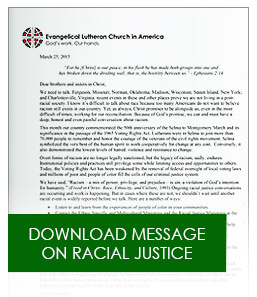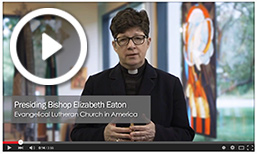 Religious freedom in a secular democracy is a complex thing. It's no wonder we stumble around and stomp on each others' free exercise of it with some regularity. Perhaps the miracle is that we so frequently actually succeed in granting one another religious freedom.
Religious freedom in a secular democracy is a complex thing. It's no wonder we stumble around and stomp on each others' free exercise of it with some regularity. Perhaps the miracle is that we so frequently actually succeed in granting one another religious freedom.We find ourselves in the present moment debating with considerable religious zeal new laws in Indiana and Arkansas dubbed Religious Freedom Restoration Acts. Because these laws are coming up in close proximity to new state and federal approaches to the freedom to marry, it is fairly clear what energizes some state governments to put these laws in place at this time.
There's quite a lot of smoke and mirrors on all sides, so it's hard to get a handle on what precisely these new laws will do, if anything, different than the original Religious Freedom Restoration Act passed by the federal government in 1993. Part of the reason we are debating all of this now is because states are enacting their own legislation, because the law passed in 1993 was found unconstitutional when applied to the states.
I have found these two articles especially helpful in understanding the complexity of the issues, and recommend to all readers of this blog:
http://web.law.columbia.edu/sites/default/files/microsites/gender-sexuality/law_professors_letter_on_indiana_rfra.pdf
http://religionandpolitics.org/2015/03/03/state-legislatures-pit-religious-freedom-against-civil-rights/
Those are the longer legal explanations and analyses, and they are important. In what follows, I'm going to lay out how I think about this issue theologically and personally.
First of all, I am opposed to Indiana and Arkansas adopting these new laws. Since I live in Arkansas, I'd like to say very clearly, this is #notmyarkansas, and encourage everyone to sign the petition going to Governor Asa Hutchinson. Any legislation that increases the chances of discrimination rather than expanding anti-discrimination policies is a move in the wrong direction.
At the same time, I am sympathetic to those who are trying as best they can to protect the religious freedoms of their constituents. I for one am glad that our nation interprets the protection of religious freedoms very, very broadly. How to protect individual religious freedom is always complicated in specific instances, because our "free" exercise of religion often impinges on the "freedom" of others.
Take one example of a nation that I think got this wrong recently. France, in 2010, banned face coverings. They did so as a response to increasing numbers of women in France wearing niqabs as a part of their hijab. Many women who wear these are exercising their freedom of religious expression and specifically in a public context because the niqab is designed to be worn in public. France outlawed this practice. They also unintentionally outlawed all public face-coverings, including the masks mascots wear at ball games.
Interestingly, the law was passed, ostensibly, in order to protect the religious freedom of women, who were perceived to have been forced to wear the masks. So there were at least three religious freedoms at play in this instance: the religious freedom of the women, the religious freedom of France, a secular nation with secular values, and the religious freedom of men who as heads of households desired their wives to wear the niqab. The ensuing debates had various defenders and detractors of each form of religious freedom.
Also of interest in France was the fact that, at most, this law affected approximately 2000 women who traditionally wore such clothing. That's about .003% of the population of France. So we are talking about a secular state passing a law that affects an extremely small minority of the population.
Now let's return to U.S. soil. I am incredibly thankful that my neighbor who wears a niqab while out on a walk can do so legally. If my children have classmates in school who wish to wear one, I pray the school and state will protect their right to do so.
On the other hand, I can imagine times when I would be uncomfortable with someone wearing a face-mask. A man walking up to our school in the middle of the day with a ski mask on would worry me.
Similarly, the group of people who most benefited from the 1993 federal law were Native American communities, who were able to exercise greater tribal rights and protections as a result of the law. I am thankful for this.
But in a secular state, I do distinguish between businesses and individuals, tribal communities and individual religious believers. So in the present instance, my primary concern with the new laws Indiana and Arkansas are enacting is that they are extending free expression of religion to companies and businesses. That seems an odd move.
For example, I think I'm fine with the state protecting your right to decide who comes into your own home, your private residence. If you don't want somebody to come in who has a sexual orientation you find problematic to enter your domicile, I'd protect that. I'd still think you were a bigot.
But if you own a business, which is a public good and operates in the public sphere, I do not believe your business has the right to exclude people in the same way as free exercise of religion clauses protect you as an individual. I don't care if you disagree with interracial marriage on religious grounds. You still need to serve a couple who walks into your restaurant and wants to dine.
So you have your personal religious convictions, and I have mine, but then there are also our convictions together in the public sphere, and this is what we are working out in our debates around RFRA laws.
My bias is to protect minorities. Even this bias becomes complicated, but in states like Arkansas or Indiana, I am particularly concerned that the new laws will encourage and allow increasing levels of bigotry towards the LGBTQ community. I know, I know, the Christians who want to not serve LGBTQ people think they are the ones who are being persecuted and marginalized, but I just don't buy it. They are still the establishment, the ones in power. They passed the law in Arkansas, after all.
I do think, however, that we have a responsibility as citizens in a secular democracy to attempt to understand the religious convictions of others, even ones we disagree with. I need to find someone who doesn't want to serve LGBTQ clients in their store and learn from them why they believe what they do. We need to have a conversation. We're only going to be able to protect and expand all our religious freedoms if we seek mutual understanding.
This is why the polarizing nature of the current debate has me worried. It's as if we are completely talking past each other. The viral conversation between Governor Pence and George Stephanopolis is just one example of this complete misunderstanding and obfuscation.
And we have to recognize, which many seem to not recognize, that when we protect religious freedoms, we are never protecting all religious freedoms. Some things we think we should be able to do on religious grounds are illegal, and that's part of living in a nation with specific laws. You have your religion, and I have mine, but then we are all living together.
In a secular democracy, laws in general need to tend towards protecting the religious practices of others, rather than defending our own religion, the supposed religious perspective of companies or corporations, or the religion of the establishment. In the current instance, the new law in Indiana and the proposed law in Arkansas fails the test of disestablishmentarianism. Rather than protect religious freedoms, it enacts and protects a specific religious perspective.
I'm reminded of that famous line of Luther's from The Freedom of A Christian: “A Christian is a perfectly free lord of all, subject to none. A Christian is a perfectly dutiful servant of all, subject of all, subject to all.” It's a paradox, but one worth plumbing the depths of.








